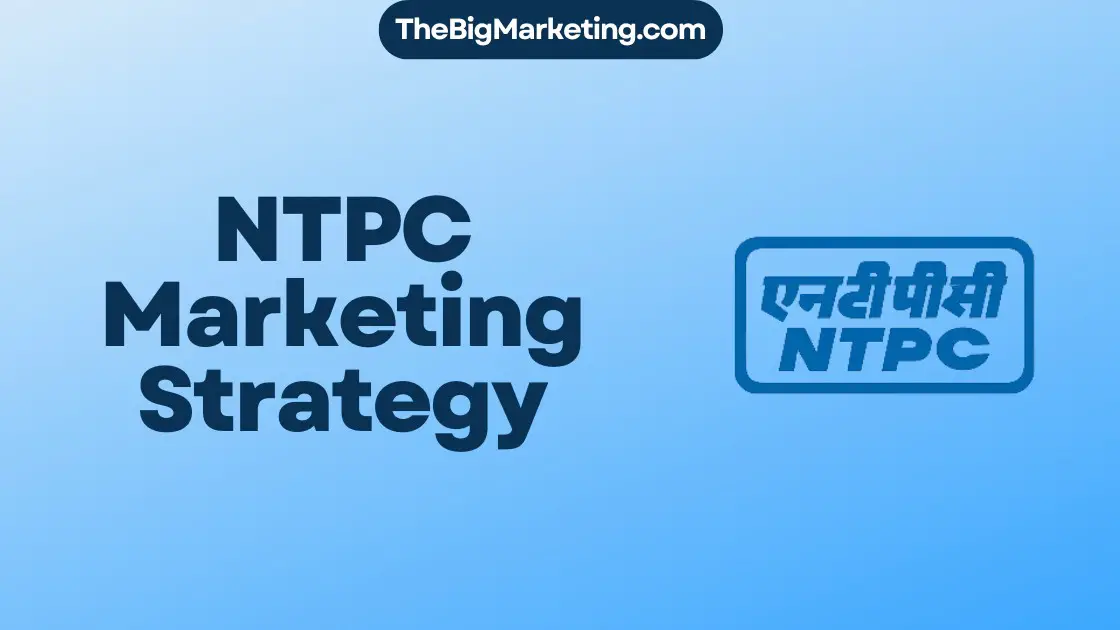Welcome to our in-depth case study on trivago’s marketing strategy in 2024. In today’s digital age, staying ahead of the curve is crucial, especially in the fast-paced travel industry. Trivago has successfully embraced digital trends to drive customer acquisition, making it a prime example of effective marketing in the online travel space.
As the travel industry continues to evolve, leveraging digital platforms for customer acquisition has become a top priority. Trivago recognized this early on and strategically positioned itself as a leading hotel search platform, catering to the needs of modern travelers.
In this case study, we will delve into trivago’s origins, expansion, management style, strategic shift, modernization efforts, market reach, and more. By exploring the different facets of trivago’s journey, we hope to uncover valuable insights that businesses can learn from, regardless of their industry.
Key Takeaways:
- Trivago’s success is attributed to its ability to embrace and adapt to digital trends in the travel industry.
- The company’s comprehensive platform for comparing hotel prices and booking accommodations worldwide has been a key driver of customer acquisition.
- Trivago’s management style and culture, characterized by a young and diverse workforce, foster creativity and an entrepreneurial spirit.
- The strategic shift towards brand-building and a focus on the core strength of hotel search contributed to trivago’s revenue growth.
- Continuous innovation and modernization efforts, aligned with emerging digital technologies, have helped trivago stay ahead in a competitive market.
The Origins of Trivago
Trivago, the renowned online travel services platform and hotel search engine, traces its roots back to the growing demand for convenient and efficient ways to book accommodations on the internet. Founded in 2005 by Rolf Schrömgens, Stephan Stubner, Peter Vinnemeier, and Malte Siewert, trivago emerged as a pioneer in the online travel industry.
The founders recognized the potential of the emerging trend of travelers turning to online platforms to research, compare prices, and book hotels. They envisioned a platform that would simplify the process of finding and booking the perfect hotel, providing users with a comprehensive hotel search experience.
With this vision in mind, trivago was established as a hotel search platform that aggregates and compares hotel prices from various booking sites around the world. By offering users a one-stop platform to search for hotels and compare prices, trivago revolutionized the way people found accommodations for their travel plans.
The founders’ innovative approach and dedication to providing users with an exceptional online hotel search experience quickly propelled trivago to become a leading platform in the online travel services industry. Today, trivago continues to evolve and adapt to the ever-changing demands of travelers worldwide, empowering them to make informed decisions when it comes to choosing their ideal hotel stay.
Expansion and Services
As trivago grew in prominence and popularity, it expanded its services to cater to the needs of travelers worldwide. Today, trivago is recognized as a leading online platform for comparing hotel prices and booking accommodations. With its vast database of hotels and accommodations, trivago provides users with an extensive range of options to choose from, ensuring that they find the perfect accommodation for their travel needs.
One of the key features that sets trivago apart is its ability to aggregate hotel prices from various online travel agencies and hotel booking websites. This allows users to easily compare prices and find the best deals, ultimately helping them save time and money. trivago’s commitment to providing accurate and up-to-date information ensures that users can make informed decisions when booking their accommodations.
Moreover, trivago’s user-friendly interface and intuitive search filters make it effortless for travelers to find accommodations that match their preferences. Whether it’s a luxury hotel in a bustling city or a cozy bed and breakfast in a picturesque countryside, trivago offers a diverse range of options to suit every traveler’s taste and budget.
Comparing Hotel Prices Made Easy
With trivago, users can easily compare hotel prices by simply entering their desired destination and travel dates. The platform then presents a comprehensive list of available accommodations, complete with detailed information, customer reviews, and, of course, the prices.
To further help travelers make informed decisions, trivago provides additional filters to refine search results. Users can narrow down their search based on factors such as facilities, amenities, star ratings, and more. This ensures that users can find the perfect hotel that meets their specific requirements, whether it’s a business trip, a family vacation, or a romantic getaway.
The user-friendly nature of trivago’s platform and its emphasis on transparency have contributed to its popularity among travelers. By providing users with the necessary tools and information to compare hotel prices and accommodations, trivago has become an indispensable resource in the online travel industry.
| Key Features of trivago’s Expansion and Services | |
|---|---|
| Extensive database of hotels and accommodations | ✔ |
| Aggregates hotel prices from various online travel agencies and booking websites | ✔ |
| Intuitive search filters for easy customization | ✔ |
| Transparent and accurate information for informed decision-making | ✔ |
| User-friendly interface for seamless navigation | ✔ |
Management Style and Culture
Trivago is known for its unique and dynamic management style that fosters an entrepreneurial culture within the organization. The company’s workforce is the backbone of its success, comprising individuals who embody the values of youthfulness, diversity, and an adventurous spirit.
At trivago, the management style encourages autonomy, innovation, and collaboration among employees. Rather than micromanagement, the emphasis is placed on empowering individuals to take ownership of their work and contribute to the company’s growth and success.
The company’s hiring process is designed to attract individuals who are not only skilled and talented but also share the company’s entrepreneurial mindset. Trivago seeks out candidates who are passionate, forward-thinking, and eager to challenge the status quo.
As part of its entrepreneurial culture, trivago believes in providing opportunities for personal and professional growth. Employees are encouraged to take risks, think creatively, and pursue innovative ideas. This culture of continuous learning and improvement fuels trivago’s ability to stay ahead of the competition in the fast-paced online travel industry.
The entrepreneurial spirit at trivago extends beyond individual employees. The company also values partnerships and collaborations with external organizations that share its vision and values. Through strategic alliances, trivago can leverage collective expertise and resources to drive growth and innovation.
Overall, trivago’s management style and culture create an environment where employees are motivated to excel, take risks, and contribute their unique perspectives to the company’s vision. This culture of entrepreneurship sets trivago apart and enables it to adapt, innovate, and thrive in the ever-evolving online travel industry.
Strategic Shift and Brand Building
Trivago’s journey to success involved a strategic shift and a strong focus on brand building. The company recognized the need to adapt to changing market dynamics and decided to refocus on its core strength – hotel search and price comparisons. This strategic shift allowed Trivago to capitalize on its expertise in providing reliable and comprehensive hotel information to users.
By focusing on its core offering, Trivago was able to enhance the user experience and provide valuable insights into hotel prices and accommodations. This proved to be a winning strategy as it helped Trivago consolidate its position as a leading online travel platform.
To support its strategic shift, Trivago also invested heavily in brand building. The company understood the importance of establishing a strong brand presence to attract and retain customers. Trivago’s brand-building efforts included innovative marketing campaigns, such as memorable TV advertisements that resonated with its target audience.
These brand-building efforts not only increased brand recognition but also contributed to Trivago’s revenue growth. By capturing the attention of travelers through compelling advertisements, Trivago successfully drove user engagement and increased its customer base.
The strategic shift and brand-building initiatives undertaken by Trivago have been instrumental in driving revenue growth for the company. By leveraging its core strength and investing in effective marketing strategies, Trivago has been able to establish itself as a trusted and preferred platform for hotel search and bookings.
| Benefits of Strategic Shift and Brand Building | Impact on Revenue Growth |
|---|---|
| Increased brand recognition | Higher customer acquisition |
| Enhanced user experience | Improved customer retention |
| Consolidated position in the market | Competitive advantage |
Modernization and Innovation
As digital technologies continue to shape the travel industry, trivago remains committed to modernization and innovation to stay ahead of the curve. The company recognizes the importance of aligning its research, product development, and marketing efforts to meet the evolving demands of travelers. By embracing emerging digital trends, trivago aims to provide a personalized user experience that caters to the unique preferences and needs of each individual.
One area of focus for trivago is incorporating artificial intelligence (AI) and machine learning into its platform. These technologies have the potential to revolutionize the way users search for and book accommodations. By leveraging AI algorithms, trivago can analyze user data, preferences, and booking patterns to offer tailored recommendations and optimize the overall user experience. This integration of digital technologies allows trivago to provide relevant and accurate search results, ensuring that users find the best accommodations for their needs.
Furthermore, trivago is continuously exploring new avenues for growth and improvement. Through research and development initiatives, the company aims to identify emerging digital trends and leverage them to enhance its services. This proactive approach enables trivago to stay at the forefront of the online travel industry, offering innovative solutions that meet the evolving needs of travelers.
To illustrate trivago’s commitment to modernization and innovation, we present the following table:
| Innovation Initiatives | Description |
|---|---|
| Data-driven decision making | Utilizing advanced analytics and data insights to inform strategic decisions and optimize user experiences. |
| Smart pricing algorithms | Developing sophisticated algorithms that consider various factors to provide users with the best possible pricing options. |
| Partnership with tech startups | Collaborating with innovative tech startups to explore new technologies and enhance trivago’s offerings. |
| Continuous testing and iteration | Regularly testing new features and functionalities to improve the platform based on user feedback and behavior. |
Through these initiatives and a commitment to embracing digital technologies, trivago aims to elevate the online travel experience and maintain its position as a leader in the industry.
Market Reach and Acquisitions
In order to solidify its position as a leader in the online travel industry, trivago is focusing on expanding its market reach through strategic acquisitions. By capitalizing on emerging trends, trivago aims to stay at the forefront of the evolving travel landscape.
The online travel industry is constantly evolving, driven by changing consumer preferences and technological advancements. To adapt to this dynamic environment, trivago recognizes the importance of actively seeking out opportunities to expand its market reach.
Acquisitions as a Growth Strategy
Acquisitions allow trivago to tap into new customer segments, enter new markets, and broaden its range of services. By acquiring complementary businesses or technologies, trivago can enhance its offerings and provide a more comprehensive travel experience for its users.
This strategic approach not only enables trivago to reach a wider audience but also strengthens its competitive position. By incorporating the strengths and expertise of acquired companies, trivago can leverage synergies to create value and drive growth.
Embracing Emerging Trends
trivago understands the significance of staying ahead of emerging trends in the travel industry. By closely monitoring shifts in consumer behavior, technological advancements, and market dynamics, trivago can identify opportunities for growth and innovation.
By capitalizing on emerging trends, trivago aims to offer innovative solutions that meet the evolving needs of travelers. This proactive approach positions trivago as a market leader and ensures that it remains at the forefront of the industry.
Partnerships and Collaborations
In addition to acquisitions, trivago also explores partnerships and collaborations with other travel and technology companies. These strategic alliances allow trivago to tap into the expertise and resources of like-minded organizations to drive innovation and create unique value propositions.
By collaborating with industry leaders and technology pioneers, trivago can leverage shared knowledge and resources, collectively solving challenges and shaping the future of the online travel industry.
As trivago expands its market reach through acquisitions and embraces emerging trends, it positions itself for continued success in the highly competitive online travel industry. By proactively identifying opportunities and collaborating with industry partners, trivago remains dedicated to delivering exceptional travel experiences to its global user base.
Criticisms and Challenges
Despite its success in the online travel industry, trivago has not been immune to criticisms and challenges. One of the primary concerns revolves around trivago’s ability to foster innovation and keep pace with technological advancements in the industry. As the travel landscape continues to evolve rapidly, trivago must continually adapt its strategies to meet the changing needs and expectations of its customers.
Another area of focus for critics is trivago’s decentralized organizational structure. While decentralization can promote autonomy and encourage creative thinking, it may also pose challenges in terms of coordination and efficiency. Critics argue that the decentralized structure could hinder communication and decision-making processes, potentially slowing down the pace of innovation and hindering progress.
To address these criticisms and challenges, trivago must prioritize a culture of continuous improvement and remain committed to driving innovation within its organizational framework. Embracing a growth mindset that encourages experimentation and learning can help trivago overcome these challenges and position itself as a leader in the online travel industry.
As trivago continues to navigate the ever-changing landscape of the travel industry, it must proactively address these criticisms and challenges. By fostering a culture of innovation and implementing agile strategies to streamline its organizational structure, trivago can stay at the forefront of the industry and continue to provide customers with cutting-edge solutions for their travel needs.
Key Challenges:
- Innovation: Adapting to technological advancements in the online travel industry
- Organizational Structure: Addressing potential coordination inefficiencies due to decentralization
Overcoming these challenges is crucial for trivago’s long-term success. By embracing innovation and finding ways to optimize its organizational structure, trivago can maintain its competitive edge and continue to drive growth in the online travel market.
Leadership and Continuous Improvement
trivago’s success can be attributed to its strong leadership and dedication to continuous improvement. Under the guidance of visionary leaders and a growth mindset, trivago has thrived in the competitive online travel industry.
The leadership at trivago fosters a culture that values learning and adaptation. They believe that continuous improvement is the key to staying ahead in a rapidly evolving market. This commitment to growth drives the company to continuously explore new strategies, technologies, and opportunities for innovation.
trivago’s leaders understand the importance of nurturing a growth mindset within their teams. They encourage employees to embrace challenges, learn from failures, and constantly seek ways to improve. This mindset fuels creativity and propels trivago’s ongoing success.
The IPO as a Reflection of Strategic Vision
trivago’s leadership has continually demonstrated their strategic vision for the company. One significant milestone in trivago’s journey was its initial public offering (IPO) in 2016. The decision to go public reflected trivago’s confidence in its ability to drive further evolution and expansion in the online travel industry.
The IPO not only provided trivago with access to capital but also served as a testament to the company’s leadership and value proposition. It showcased trivago’s potential for continued growth and attracted investors who believed in its vision and trajectory.
Through effective leadership and a commitment to continuous improvement, trivago has positioned itself as a leader in the online travel industry. By fostering a culture of learning, embracing a growth mindset, and leveraging strategic opportunities like the IPO, trivago continues to thrive and drive innovation in the ever-changing landscape of the travel sector.
Conclusion
Throughout this case study, we have examined trivago’s marketing strategy in 2024 and its impact on the company’s success. One key factor that stood out was the importance of a well-organized organizational structure. By embracing a decentralized approach, trivago fostered a culture of innovation and collaboration, enabling it to stay competitive in the dynamic online travel industry.
Another crucial aspect of trivago’s strategy was its unwavering focus on profitability. By continuously optimizing its operations and leveraging digital technologies, trivago achieved sustainable growth and maintained a strong financial position.
Furthermore, the clear goals set by trivago played a crucial role in driving its marketing strategy. By aligning its efforts with the objective of providing users with the best hotel search and booking experience, trivago succeeded in establishing itself as a trusted and go-to platform for travelers worldwide.
In conclusion, trivago’s marketing strategy in 2024 highlighted the importance of an efficient organizational structure, profitability, and clearly defined goals. By embracing these key elements, trivago was able to navigate the ever-evolving travel industry and maintain its position as a leader in the online hotel search and booking market.






